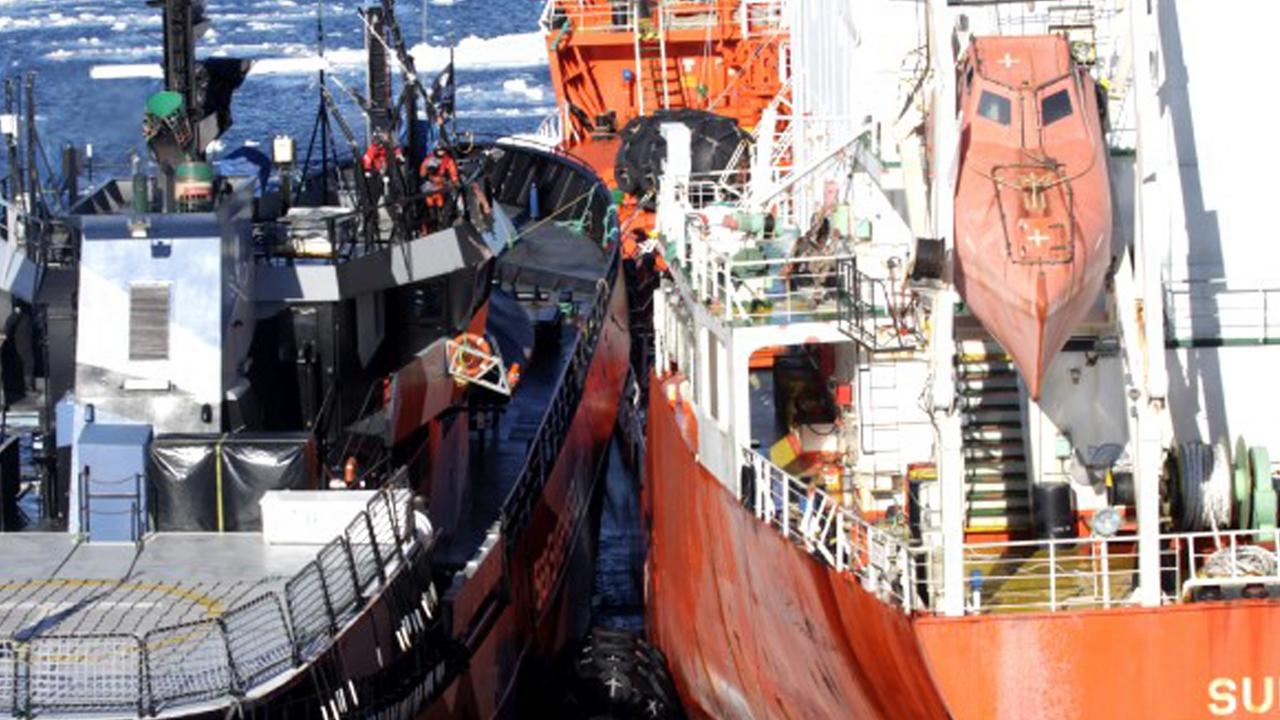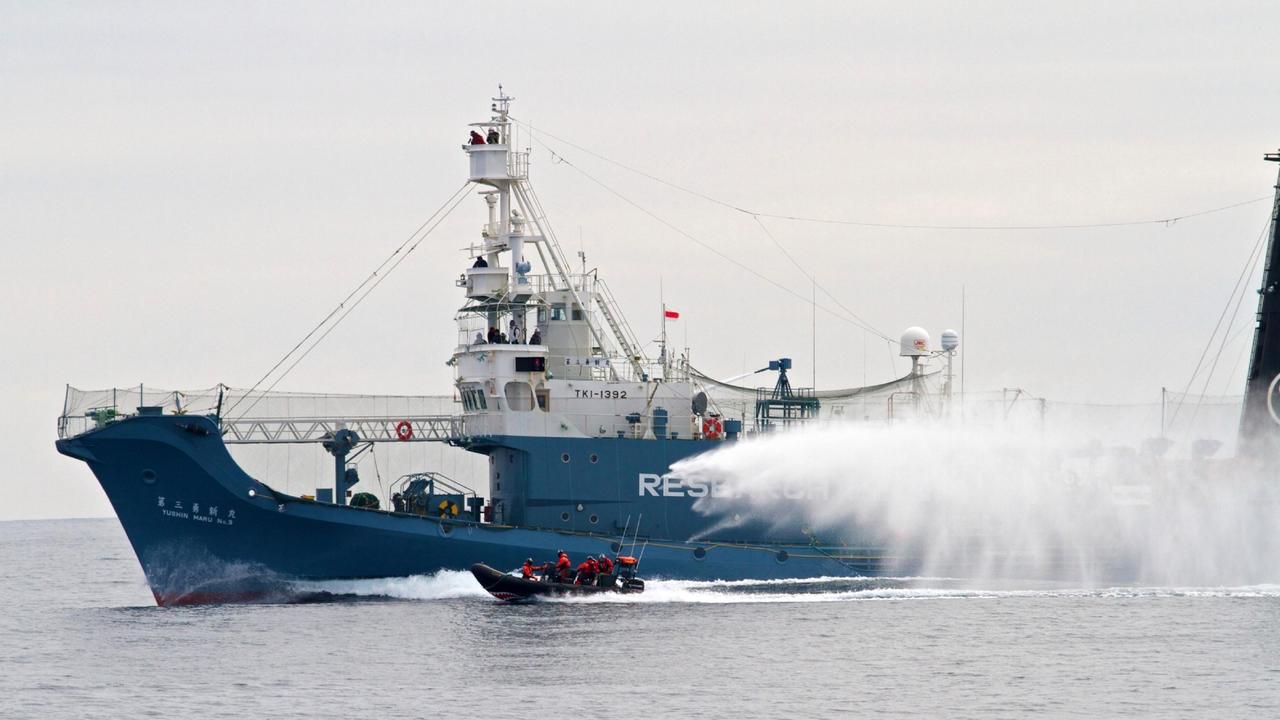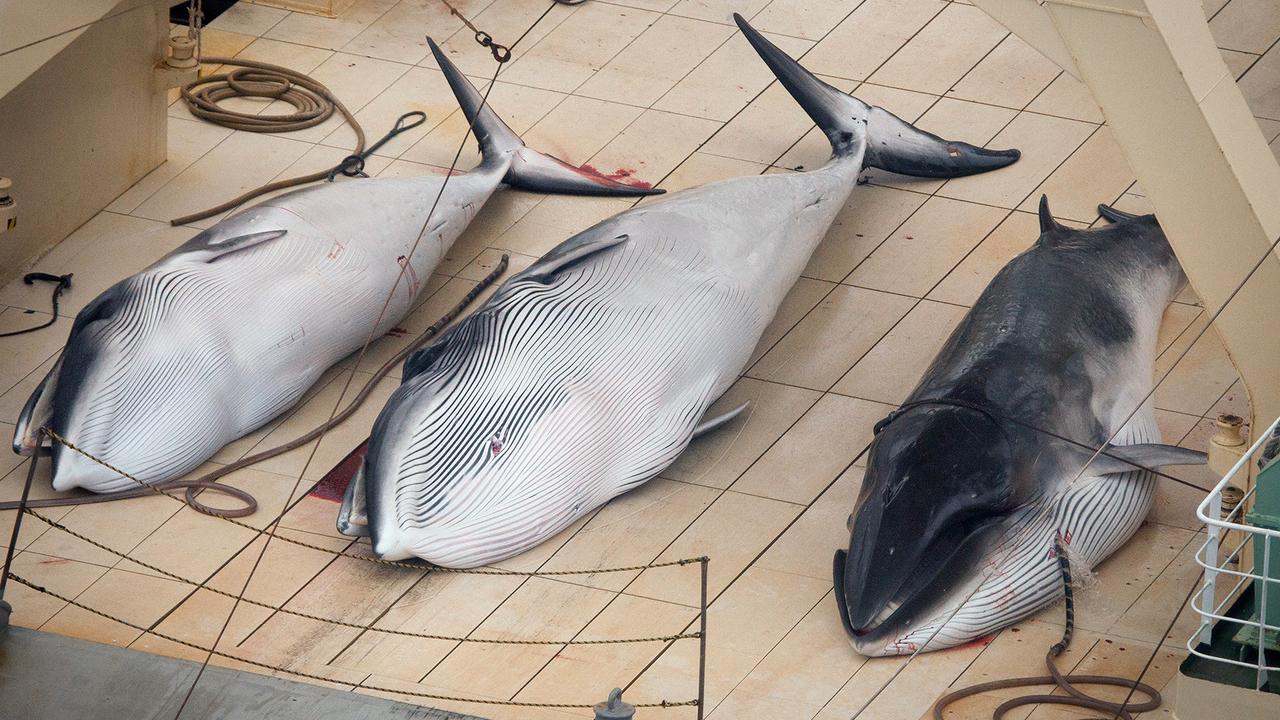Japan announces it will resume commercial whaling next year
With the country announcing it will start commercial whaling again, Australia has implored Tokyo to reverse the “regrettable” decision.
Japan has announced it will resume controversial commercial whaling next year and withdraw from the International Whaling Commission.
A government spokesman made the announcement on Wednesday in a move that’s sparked international criticism.
The decision was made at a cabinet meeting on Tuesday after the government decided it would be difficult to resume commercial whaling while a member of the international body.
Chief Cabinet Secretary Yoshihide Suga said the hunts would be limited to Japan’s territorial waters and its exclusive economic zone along the country’s coasts.
He said their commercial whaling would start in July 2019 after a 30-year absence “in line with Japan’s basic policy of promoting sustainable use of aquatic living resources based on scientific evidence”.
“Regrettably, we have reached a decision that it is impossible in the IWC to seek the coexistence of states with different views,” Mr Suga said.
Mr Suga said the IWC had been dominated by conservationists and Japan was disappointed over its efforts to manage whale stocks even though the IWC has a treaty mandate for both whale conservation and development of the whaling industry.
The IWC imposed a commercial moratorium in the 1980s due to a dwindling whale population.
Japan switched to what it called research whaling and said stocks had recovered enough to resume commercial hunt.
The research program was criticised as a cover for commercial hunting as the meat is sold on the market at home.
Environmental group Greenpeace condemned the decision and disputed Japan’s view that whale stocks had recovered, noting that ocean life was also being threatened by pollution and overfishing.
“The declaration today is out of step with the international community, let alone the protection needed to safeguard the future of our oceans and these majestic creatures,” Sam Annesley, executive director at Greenpeace Japan, said in a statement.
“The government of Japan must urgently act to conserve marine ecosystems, rather than resume commercial whaling.”
Australia’s Foreign Minister Marise Payne and Environment Minister Melissa Price said the Morrison government was “extremely disappointed” at the Japanese decision.
“Australia urges Japan to return to the Convention and Commission as a matter of priority,” the pair said in a statement. “Australia remains resolutely opposed to all forms of commercial and so-called ‘scientific’ whaling. We will continue to work within the Commission to uphold the global moratorium on commercial whaling”.

The decision will spell the end of Japan’s whaling in the Southern Ocean that has seen its boats in clashes with anti-whaling group Sea Shepherd.
The Australian Marine Conservation Society said Australians would be able to celebrate the end of whaling in the country’s Southern Ocean but remained “alarmed” about the potential consequences of unregulated whaling by Japan elsewhere.
“Australians have been fighting for decades to get the whalers out of the Antarctic,” AMCS boss Darren Kindleysides said.
“However, it would be a bittersweet victory if it comes with unchecked commercial whaling by Japan in their own waters, and their leaving could damage the future of the IWC itself.
The Japanese whaling fleet is currently in the Southern Ocean whaling for another season of so-called ‘scientific whaling’, aiming to kill 333 Antarctic minke whales.
That season would normally be expected to end in February or March.
“Japan has failed to force the International Whaling Commission into allowing a return to the cruel and outdated industrial whaling of the past,” Mr Kindleysides said.
“Japan has failed to persuade the international courts to allow them to kill whales under the pretence of scientific research.”
“So now Japan has turned their back on global efforts to manage whaling and conserve whales in order to kill whales outside international control.”
He said whales faced a greater number of threats today that at any stage in their past.
“Climate change, entanglement in fishing nets, plastic pollution, underwater noise and ship strikes threaten our ocean giants. Our whales need countries to work together, not go it alone.”
Greens leader Richard Di Natale described the move as “deeply disappointing” in a Twitter post.
Japan’s announcement had been widely expected and comes after Japan failed in a bid earlier this year to convince the IWC to allow it to resume commercial whaling.
Japan has been frustrated that its efforts to restart commercial whaling of more abundant species like minke whales had been blocked by anti-whaling countries.

Japan’s request for a resumption of commercial whaling was most recently denied at the IWC meeting in September.
Japanese officials have said the whaling organisation is supposed to pursue sustainability but has become an anti-whaling body. They criticise what they call the whaling commission’s lack of tolerance of diverse views on whaling and its inability to resolve the long divide between conservationists and supporters of whale use.
Tokyo has repeatedly threatened to pull out of the body, and has been regularly criticised for catching hundreds of whales a year for “scientific research” despite being a signatory to a moratorium on hunting the animals.
It's deeply disappointing to read reports this morning that Japan will resume commercial whaling activities.
— Richard Di Natale (@RichardDiNatale) December 26, 2018
The Australian Greens call on the Federal Government to take a united stand with the majority of Australians who oppose this barbaric slaughter. #auspol
The withdrawal means Japan joins Iceland and Norway in openly defying the IWC’s ban on commercial whale hunting.
It is certain to infuriate conservationists and anti-whaling countries such as Australia and New Zealand, and deepen the divide between anti-and pro-whaling countries.
Japan has hunted whales for centuries, and their meat was a key source of protein in the immediate post-World War II years when the country was desperately poor.
But consumption has declined significantly in recent decades, with much of the population saying they rarely or never eat whale meat.
In Japan, reports about the expected move were met with a mixed reaction.

Former Defence Minister Itsunori Onodera, who currently serves as adviser to the ruling Liberal Democratic Party’s fisheries committee, said he supported a decision to withdraw from the IWC, in an interview with Japan’s NHK television.
“I have attended IWC meetings several times in the past, and I was struck by their extremely biased views,” he said. “IWC has become a dysfunctional organisation.”
Ruling party members, many of whom support resuming commercial whaling as part of Japan’s traditional food culture, said it’s not helpful to stay in the IWC.
But Masayuki Komatsu, a former fisheries official who represented Japan at IWC, questioned if Japan gains anything from withdrawing.
“I doubt if a withdrawal improves the current situation,” he told NHK.
Japan annually consumes about 5,000 tons of whale meat from the research hunts, mainly by the older generation who feel nostalgic about the meat.
But critics say they doubt if a country with an ageing and shrinking population can develop a sustainable whaling industry if it returns to commercial hunts. Many younger people don’t see whales as food.
Japan cut back on its catch after a 2014 international court ruling.
Japan’s Antarctic catch is now capped at 333 whales a year — about a third of the quota before a 2014 International Court of Justice ruling found that Japanese research whaling wasn’t sufficiently scientific.
— additional reporting from wires



